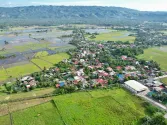
CPI scales bamboo biomass to bigger hybrid projects
Locals are powering community-led RE initiatives in Indonesia.
Clean Power Indonesia (CPI), which pioneered bamboo-fueled power plants in the Mentawai Islands in West Sumatra, is scaling up its renewable energy initiatives with a 30-megawatt (MW) hybrid project in Atambua, TImor and a plan to achieve 100% renewable energy in Nusa Penida before Bali’s 2045 net-zero target.
The company’s earlier project in Mentawai delivered 700 kilowatts (kW) of power to 1,233 households across three villages—Saliguma, Madobag, and Matotonan.
Operated by PT Carta Putra Indonesia and funded by the US Millennium Challenge Corp., the $14m initiative replaced costly diesel generation with bamboo biomass whilst generating income streams for local communities.
“Small islands in Indonesia can’t rely on the same energy models as India or China—we need solutions that work with our local realities,” CPI President-Director Jaya Wahono told Asian Power.
The Mentawai facilities, later handed over to the National Development Planning Agency (Bappenas) and then the local government, became a model for community-led energy. Locals set up cooperatives and their own enterprises to cultivate bamboo, supply fuel, and buy power from PT Perusahaan Listrik Negara (Persero) Tbk (PLN), creating both supply and demand locally.
The programme generated about $122,000 (IDR 2b) annually from bamboo sales and was projected to save as much as $857,000 (IDR 14b) yearly by displacing diesel.
“By making the community both the supplier of biomass and the user of electricity, you ensure sustainability—people have a direct stake in the system’s success,” Wahono said in an interview.
One innovation was biochar, a by-product of bamboo gasification. Initially applied to restore degraded soils, it is now being developed as a potential substitute for coking coal in steelmaking.
“With biochar, you get three wins at once—reduced emissions, healthier soils, and potential carbon credit revenues,” Wahono said.
The tech is central to CPI’s projects. In Atambua, East Nusa Tenggara in Timor, the company is preparing raw materials and finalizing feasibility studies for a hybrid plant integrating biomass, solar, and wind.
Listed in PLN’s long-term power plan, the project is designed to reach 30 MW and replace stalled coal developments in the region. CPI seeks to replicate the participatory model used in Mentawai to ensure reliable feedstock supply and community benefits.
In Bali’s Nusa Penida, CPI is pursuing an even more ambitious target: achieving 100% renewable energy by 2030. The plan has been adopted into the Bali provincial government’s strategic programme.
The system will use gamal wood for biomass—its leaves feed livestock while stems supply fuel—alongside solar and battery storage. Electricity will be sold to PLN under long-term contracts.
“The people here understand this isn’t just about power—it’s about jobs, income, and a healthier environment,” Wahono said.
Nusa Penida has attracted investment from a major Indonesian company and is expected to become a learning hub for small islands nationwide.
Indonesia’s uneven energy access underscores the significance of such projects. While Jakarta’s per capita electricity use is around 6,000 kWh, the national average is just 1,000 kWh. In remote areas such as Mentawai and Nusa Tenggara Timur, consumption falls to 200 kWh, similar to Sub-Saharan Africa.
“The Mentawai project was the proof of concept,” Wahono said. “Now, Nusa Penida will be the proof of scale.”
















 Advertise
Advertise









